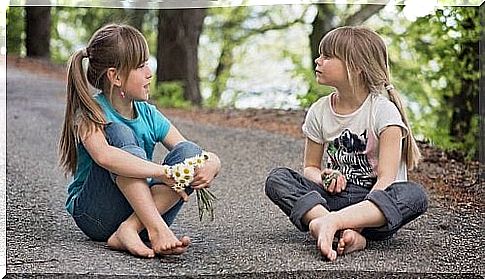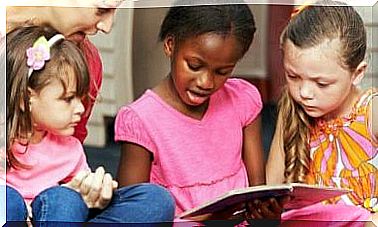The Importance Of Proverbs: How To Teach It To Children

Today we talk to you about the importance of proverbs in tradition. Proverbs are expressions of popular origin that figuratively encompass wisdom and teachings.
In general they attract people’s attention because through their peculiar shape they provide the words to say exactly what you want. There are people who consider proverbs as irrefutable truths that can be applied to all situations in life.
On the other hand, other people consider them to be things of the past, which have nothing to do with modern times.
Whatever the reality of this century, as parents do not miss the opportunity to teach your children the importance of proverbs in communicating with others. In this way you will stimulate the intellect, love, interest in a very ancient practice.
The world of proverbs

Proverbs are the treasure of popular culture. Between knowledge and poetry enclose popular wisdom. Not a few of them were born in remote times. Some by chance, others due to feelings of joy, fun and sadness.
Proverbs were born to quickly convey a message in a joking form. In short, saying a lot with little. Let’s take some examples.
To describe someone who is preparing to do many things to accomplish a small part of it, we can use the saying: ” Whoever wants too much, does not tighten anything “.
If, on the other hand, you want to describe a person who apparently has everything but does not take advantage of it, you can use the proverb: “He who has bread has no teeth “.
Saying: “Make the best of a bad situation” is easier than saying in life you need to turn the other cheek and see things in a positive way even when events seem to be against us.
Finally, “Can che barking does not bite”. This is a saying used when you want to describe people who talk a lot but actually don’t do anything they say.
The proverbs that exist are innumerable. Most of them are tied to feelings, values and qualities of the human being.
As an example of this:
“Love is stronger than death.”
“If you trust, you pay.”
“ Opportunity makes the thief man. “
“Man of value is esteemed by all.”
There are also aphorisms connected to nature, especially with the animal world. It can be mentioned:
” They sold you a cat for a hare “.

“The donkey knows in which house to bray.”
” Old horse does not learn a new trot. “
“When the cat is not there, the mice dance.”
Days of the week, months and years have given rise to most of the sayings. The bad weather, the laws, the arts, have also proved to be themes suitable for the formation and the birth of various proverbs.
The importance of proverbs and their knowledge
Proverbs form part of the oral heritage of several countries and are a reflection of the idiosyncrasies of many peoples.
Teaching them to your children could awaken their interest in other cultures, in history.
Reading and taking note of their favorite sayings will help them improve their spelling and learn words that are not used daily but are part of our language.
These aphorisms stimulate their imagination and their creative spirit. Who knows, every time your child becomes passionate about proverbs, they won’t formulate their own. Something like this can mean the start of a career as a writer.
Studying proverbs leads to the analysis, reflection and interpretation of a text: techniques that will help your child in his or her school career.
Proverbs have didactic value. With them you learn different themes, but also the use of metaphor and figurative language.
The importance of proverbs and their use
First, the use of sayings has no time, place or scenario. Secondly, it does not depend on cultural level, race or gender.
To conclude, we are the proverbs, the things that happen, the setbacks, the events, the laughter of others. Popular beliefs, advice, feelings, experiences …
Invite your child to discover his favorite proverbs among popular sayings.
Teach him to know, study and use the proverbs that give poetry and beauty to his language.









